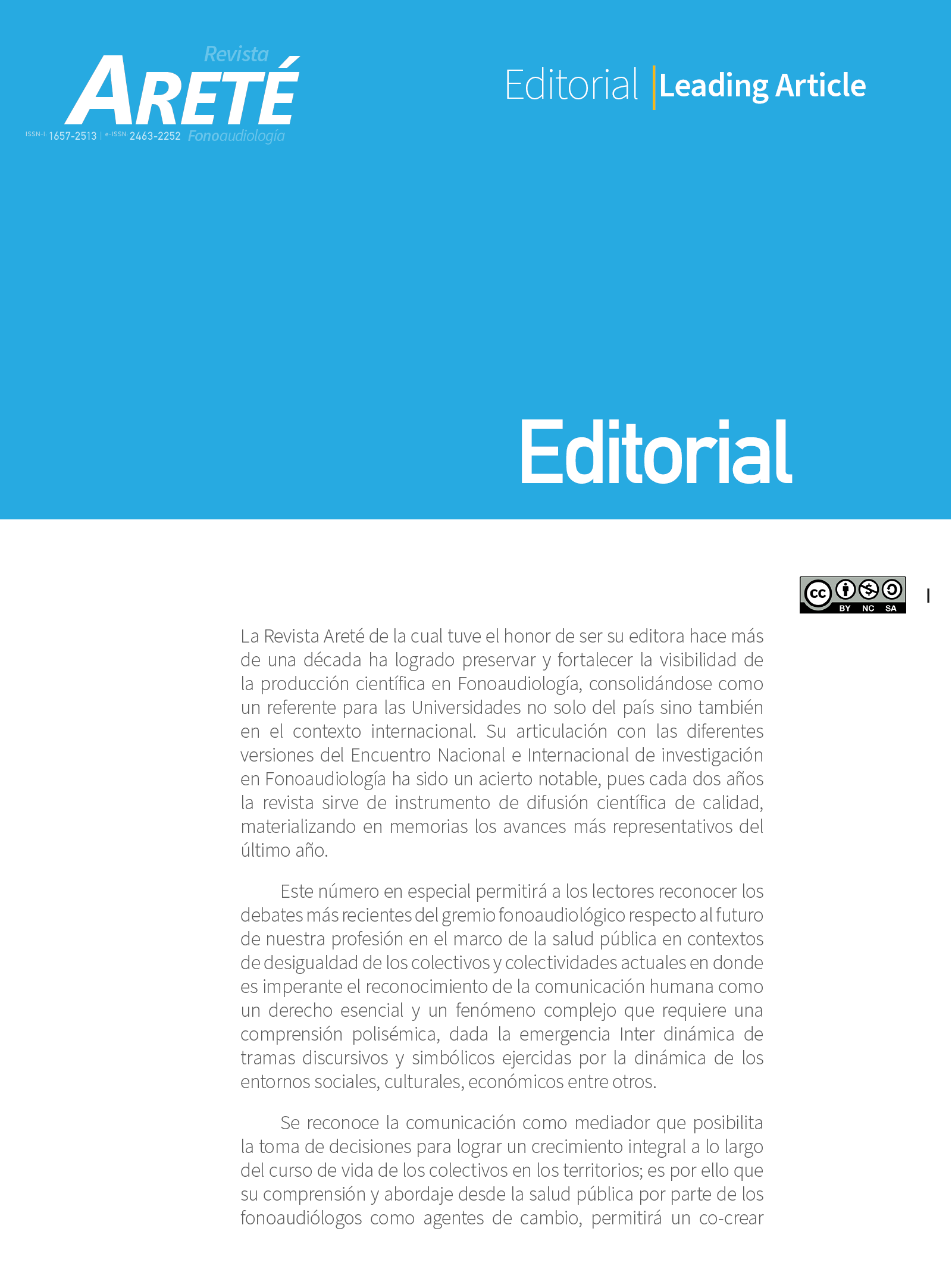Editorial
Editorial
Main Article Content
The Areté Journal has established itself as a leading platform for disseminating scientific knowledge in speech-language pathology, both nationally and internationally. Its collaboration with the National and International Research Meetings in Speech-Language Pathology has been instrumental, enabling the biennial dissemination of significant advancements in the field.
The current issue of the journal addresses contemporary debates concerning the future of speech-language pathology within the realm of public health, particularly in contexts marked by inequality. It emphasizes human communication as an essential right and a complex phenomenon that necessitates a multifaceted understanding, taking into account the social, cultural, and economic dynamics that influence it.
Communication is recognized as a key mediator in decision-making, promoting the comprehensive development of communities. Therefore, addressing it from a public health perspective, with speech-language pathologists acting as agents of change, is crucial for co-creating knowledge that fosters transformation and cooperation among various social actors.
Today's society demands a committed engagement from speech-language pathology, in collaboration with other health professions and fields of knowledge, to tackle contemporary challenges in public health and in the professional training offered by universities.
In this context, the 10th National and 7th International Research Meeting in Speech-Language Pathology convened various institutions and professionals to reflect on the relationship between theory and practice in speech-language pathology, focusing on how the profession can contribute to comprehensive care considering the social and cultural dynamics that impact human health.
The research articles presented are grouped into several thematic lines:
- Speech-Language Pathology within Health Systems: Examines the profession's role in promoting a more just society, addressing health sovereignty and social determinants from an intercultural perspective.
- Technological Challenges: Analyzes how rapid technological evolution can exacerbate existing inequities and seeks solutions for equitable integration of technologies into speech-language pathology practice.
- Educational Sphere: Highlights the role of speech-language pathology in promoting inclusive education that values diversity, especially in rural areas of Latin America where educational inequalities persist.
- Emerging Debates in Latin America: Invites a rethinking of professional practice by incorporating critical Latin American approaches, Southern epistemologies, and decolonial theories, enriching the understanding of speech-language pathology.
Finally, a call is made for the exchange of knowledge to reformulate practices that respond to local realities and the concrete needs of communities, promoting their collective well-being











